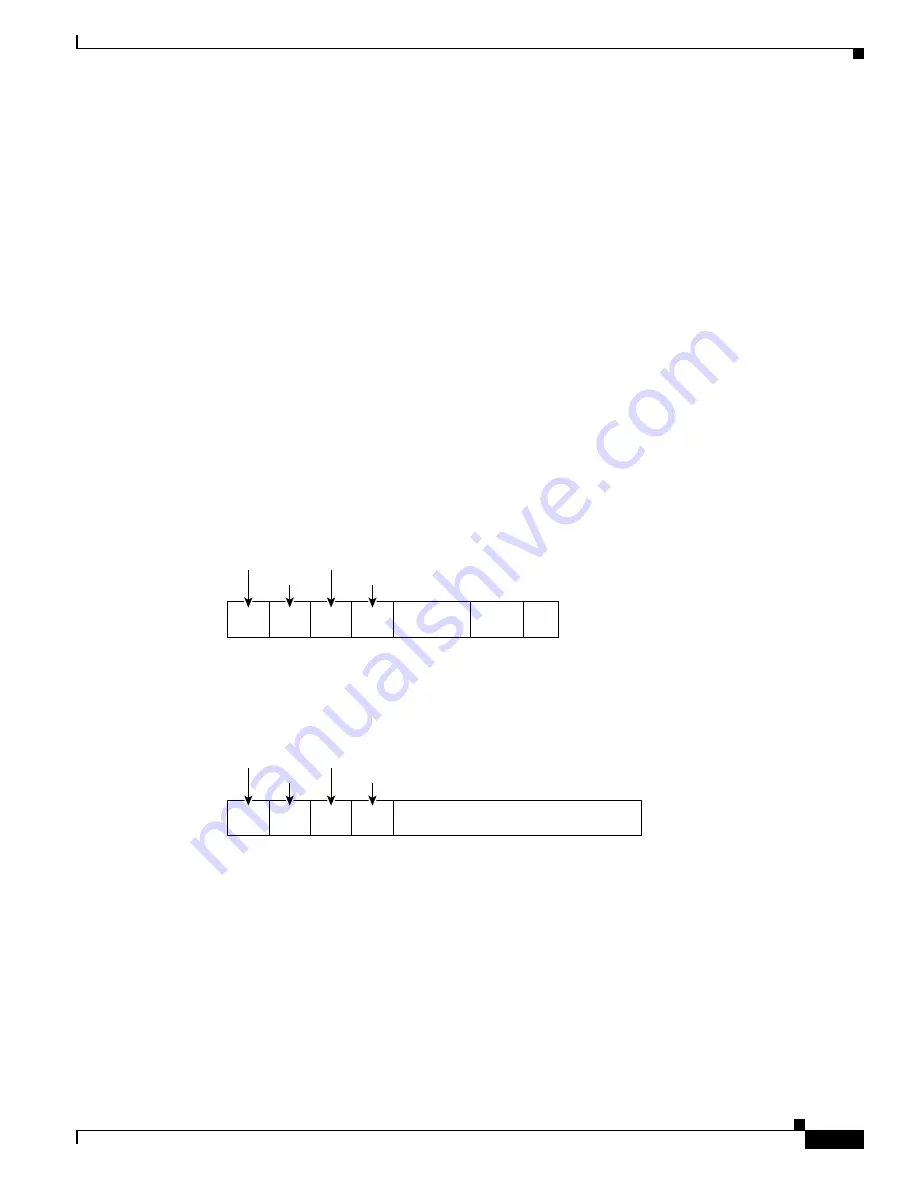
21-5
Cisco Catalyst Blade Switch 3120 for HP Software Configuration Guide
OL-12247-01
Chapter 21 Configuring DHCP Features and IP Source Guard
Understanding DHCP Features
•
Remote-ID suboption fields
–
Suboption type
–
Length of the suboption type
–
Remote-ID type
–
Length of the remote-ID type
In the port field of the circuit ID suboption, the port numbers start at 1. For example, on a switch with
Cisco dual SFP X2 converter modules in the 10-Gigabit Ethernet module slots, port 1 is the internal
Gigabit Ethernet 1/0/1 port, port 2 is the internal Gigabit Ethernet1/0/2 port, and so on. Because ports 19,
20, 21, and 22 are small form-factor pluggable (SFP) modules, port 19 is the Gigabit Ethernet1/0/19 port,
port 20 is the Gigabit Ethernet1/0/20 port, and so on. For the external 10/100/1000 ports, port 23 is
Gigabit Ethernet 1/0/23 port, port 24 is Gigabit Ethernet 1/0/24 port, and so on.
Figure 21-2
shows the packet formats for the remote-ID suboption and the circuit-ID suboption when
the default suboption configuration is used. For the circuit-ID suboption, the module number
corresponds to the switch number in the stack. The switch uses the packet formats when you globally
enable DHCP snooping and enter the ip dhcp snooping information option global configuration
command.
Figure 21-2
Suboption Packet Formats
Figure 21-3
shows the packet formats for user-configured remote-ID and circuit-ID suboptions The
switch uses these packet formats when DHCP snooping is globally enabled and when the ip dhcp
snooping information option format remote-id global configuration command and the ip dhcp
snooping vlan information option format-type circuit-id string interface configuration command are
entered.
Length
Length
Circuit
ID type
Suboption
type
Circuit ID Suboption Frame Format
Remote ID Suboption Frame Format
6 bytes
MAC address
1 byte 1 byte 1 byte
Suboption
type
1 byte
Length
Length
Remote
ID type
1 byte 1 byte 1 byte
1 byte
1
16300
4
0
6
1
6
0
8
2
Module Port
1 byte 1 byte
2 bytes
VLAN






































